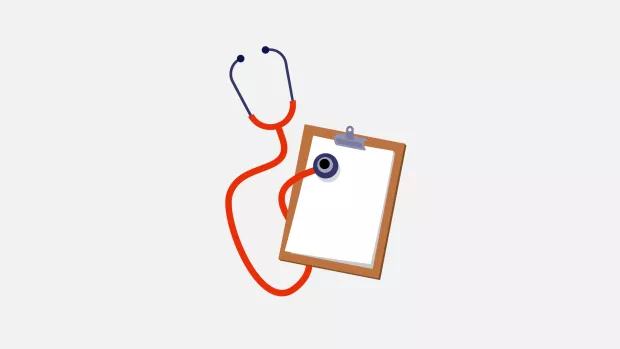
Dimethyl fumarate (Tecfidera)
Dimethyl fumarate is a disease modifying therapy (DMT) for relapsing MS. Its brand name is Tecfidera and you take it as a tablet.
Read the latest information about DMTs and coronavirus COVID-19
- Who can take dimethyl fumarate (Tecfidera)?
- How does dimethyl fumarate (Tecfidera) work?
- How well does dimethyl fumarate (Tecfidera) work?
- What are the side effects of dimethyl fumarate (Tecfidera)?
- Dimethyl fumarate (Copaxone or Brabio) and pregnancy, breastfeeding and contraception
Who can take dimethyl fumarate (Tecfidera)?
Dimethyl fumarate (Tecfidera) is recommended for people with ‘active’ relapsing MS. Dimethyl fumarate won’t work if you don’t get relapses, so you won’t be offered it if you have primary or secondary progressive MS.
Whether you’ll be offered this drug for relapsing MS depends on if you qualify for it based on guidelines used by your neurologist. These guidelines come from the Association of British Neurologists (ABN) and NICE.
In& Scotland, Wales and Northern Ireland you can have dimethyl fumarate if:
- you have relapsing MS and you’ve had a recent relapse and/or MRI scans show new signs that your MS is active (you have new lesions)
In England you can have this drug if:
- you’ve had two relapses in the last two years
How does dimethyl fumarate (Tecfidera) work?
Dimethyl fumarate, known by the brand name Tecfidera, is a disease modifying therapy (DMT) recommended for the treatment of ‘active’ relapsing multiple sclerosis. This is defined in guidelines as two or more relapses in the last two years.
Originally a drug for treating psoriasis, a trial in 2012 found that it could be an effective treatment for MS.
We don't know exactly how it works, but it dampens down inflammation. This may be helpful in reducing the inflammation that causes damage in the brain and spinal cord of people with MS. In 2014 the National Institute for Health and Care Excellence (NICE) gave the go ahead for the drug to be used on the NHS.
Dimethyl fumarate is a tablet you take twice a day. Taking it with food may help reduce some of its side effects.
How well does dimethyl fumarate (Tecfidera) work?
MS drugs can be put into three groups based on how well they control it. The effectiveness of dimethyl fumarate (Tecfidera) is classed as 'good'. This puts it between DMTs classed as 'high' effectiveness and those classed as 'moderate'. This is based on how much it reduces relapses and slows down how fast people's disability gets worse.
Relapses dropped by: 53%
This means that in one trial, on average, people saw a 53% drop in the number of relapses they had. This was compared to people who took a placebo, a dummy treatment with no drug in it.
Disability getting worse was slowed down by: 38%
This means that in one trial, on average, people saw a 38% drop in the risk of their disability getting worse. This was compared to people who took a placebo.
What are the side effects of dimethyl fumarate (Tecfidera)?
Up to 40% of people have one or more of these:
- flushing (going red in the face)
- feeling hot
- upset stomach
- feeling sick.
You will also have to have blood tests before and during treatment as it may affect your kidneys and liver and your white blood cell count.
PML: a very rare side effect
Dimethyl fumarate can increase your chances of getting a rare viral brain infection called PML (progressive multifocal leukoencephalopathy). The risk is extremely small but PML can kill or leave a person seriously disabled. As of the end of 2017 only five cases have been seen in over 230,000 people across the world taking dimethyl fumarate.
You'll have a blood test every three months to check for low levels of white blood cells, a sign that something may be wrong.
Dimethyl fumarate (Tecfidera) and pregnancy, breastfeeding and contraception
Pregnancy
Dimethyl fumarate (Tecfidera) isn’t licensed to be used during pregnancy. There’s no evidence that this drug harms babies in the womb but that was seen in animal studies. More studies are needed.
Guidelines say it’s best to avoid getting pregnant while taking this drug and that you should stop taking it if you think you’re pregnant. Some neurologists think it’s OK if you get pregnant while on this drug but you should stop as soon as you realise this.
Your neurologist may recommended you keep taking this drug through your pregnancy if the benefits outweigh the risks. If you can get pregnant, talk over with your neurologist the benefits and risks of taking dimethyl fumarate while pregnant, and whether to switch to a different DMT.
There’s no set time for the ‘wash out period’ for this drug but doctors might recommend a month or less. This is how long it takes for levels of the drug in your body to reach a level where it’s safe to get pregnant.
If you and your partner want to have a child, discuss this with your neurologist. If you think you’ve become pregnant, let your medical team know at once. Never stop your DMT without first getting their advice.
Breastfeeding
It’s not clear if dimethyl fumarate (Tecfidera) gets into breast milk. It’s recommended that you don’t feed a baby this way while on this treatment.
Contraception
If you can get pregnant, you should use reliable contraception while taking dimethyl fumarate (Tecfidera), like the ‘pill’, condoms, an IUD or implant.
Stomach problems are a common side effect of this drug, especially early on. If you’re on the pill, this might stop it working. So you might need extra contraception until this side effect stops.





